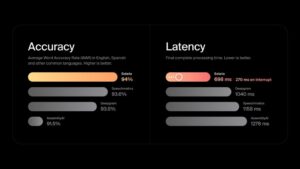How Tariffs Undermine the AI Industry

Understanding the Impact of Tariffs on the AI Industry
The influence of tariffs on the rising artificial intelligence (AI) sector has become a significant topic of discussion. Understanding how these tariffs affect AI businesses can shed light on the challenges and opportunities they encounter.
What Are Tariffs?
Tariffs are taxes imposed on imported goods and services. They serve various purposes, such as protecting domestic industries, generating government revenue, and balancing trade deficits. While tariffs can have positive effects on local businesses, they can also complicate international trade and impact global supply chains, especially for technology-based industries.
How Tariffs Affect AI Companies
Cost Increases
Tariffs can lead to higher costs for AI companies that rely on imported components or technologies. For example, if a company imports chips or software from overseas and tariffs are placed on these imports, the overall production cost will rise. As a result, companies may have to raise prices, which can reduce their competitiveness in the market.Supply Chain Disruptions
The nature of the AI industry often requires components from multiple countries. Imposing tariffs can disrupt established supply chains, leading to delays and inefficiencies. Companies may find it challenging to obtain necessary parts or technology, impacting their ability to develop new products or services promptly.Innovation Stifling
The AI sector thrives on innovation and collaboration. Tariffs can hinder these processes by making it harder for companies to collaborate internationally. Businesses may be less willing to invest in research and development if they face uncertain costs due to tariffs. This can ultimately stifle innovation in a field that requires constant advancement.- Market Uncertainty
Tariffs can create an uncertain business environment. Companies may hesitate to make long-term investments or strategic decisions when the cost of doing business is unpredictable. This uncertainty can lead to slower growth and hinder the potential of AI startups, which often rely on investment to expand rapidly.
Navigating Tariff Challenges
To mitigate the adverse effects of tariffs, AI companies can adopt various strategies:
Diversifying Suppliers
By sourcing components from multiple suppliers, companies can reduce reliance on any single country. This approach can help minimize the impact of tariffs by allowing firms to find cost-effective alternatives.Investing in Local Production
Setting up production facilities domestically can help avoid tariffs on imported goods. While this requires significant investment, it can enhance efficiency and decrease vulnerability to international trade disputes.- Engaging in Advocacy
Companies can work with industry associations to lobby for favorable trade policies. By uniting their voices, businesses can advocate for tariff reductions or exemptions that will benefit the broader tech community.
The Global Landscape
The global nature of the AI industry means that trade policies can have widespread implications. For instance, the competition between the United States and China in the AI sector is intensified by tariff policies. U.S. companies may face tariffs on imports from China, while Chinese companies may encounter obstacles entering the U.S. market. This competitive dynamic adds complexity to the already challenging landscape of international trade in AI.
Trends in Trade Policy
As governments evaluate their trade policies, the tech community is closely examining anticipated shifts in tariffs that could impact AI. Policymakers need to balance protectionist measures with the need for innovation and collaboration to remain competitive in a rapidly evolving field.
Conclusion
In summary, tariffs can significantly affect the AI sector in multiple ways. From increasing costs and disrupting supply chains to fostering market uncertainty, these trade barriers present several challenges for companies within the industry. By implementing strategic approaches to navigate these issues, AI businesses can better position themselves to thrive in a global market influenced by international trade policies.




